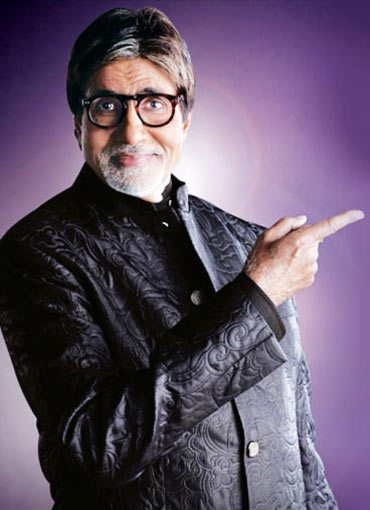
"Stay together, stay one. India first, all else after" -- tweeted Amitabh Bachchan on the morning of September 30. About 81 million internet subscribers across the country echoed his views throughout the day.
Passions ran high as Indian users reinvented social activism by discussing the Ayodhya verdict on social networks like Facebook through status updates and over tweets on Twitter.
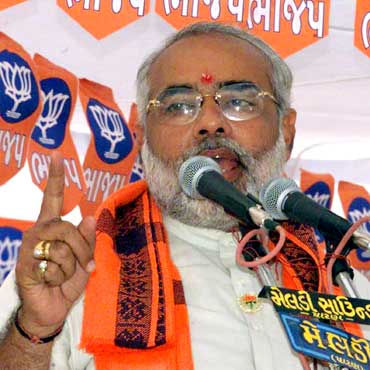
In the evening, Gujarat Chief Minister Narendra Modi tweeted: "Verdict of the Lucknow bench on Ayodhya-Ram Janmabhoomi dispute is not for any race or religion, but for Bharat the nation and her pride." The message was promptly shared by his followers on Twitter more than 100 times.
Such was the response on the world wide web that keywords like 'Ayodhya' made it to the top trending (popular subjects) list on Twitter. The social networking site had more than three million unique visitors from India in July 2010.
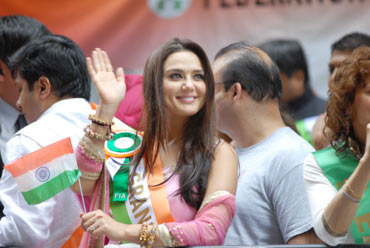
Vivek Deosthali, vaastu consultant, expressed his displeasure on the broadcast media's coverage of the Ayodhya verdict on his Facebook page: "TV channels need to practice restrain. They are not the decision makers." Within minutes, his status message was 'liked' (a Facebook feature that allows users to click a button to affirm their opinion) by 34 users.
Like wise, anti-national sentiments on Twitter and Facebook were duly criticised by social networking users and several user accounts were reported for abuse by Indian internet users.
"I reported 5-7 user accounts on Twitter and Facebook for spam and abuse as they were spreading anti-national rumours and comments," claimed Bishal Nag, a student from Lucknow University.
Internet evangelism also found favour with Bollywood actors like Preity Zinta who twitted: "Thank you to the people of India for showing maturity and unity today and bravo to the media and the government for handling the delicate situation wonderfully."
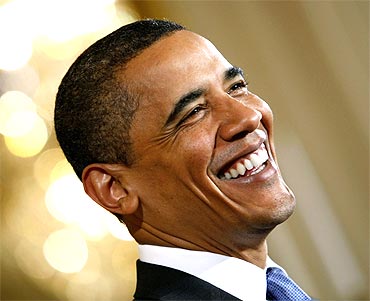
One of the most popular tweets that was shared by users on Twitter: "We have built enough mosques and temples. Lets build the nation now"
It was labelled as the top tweet on the micro-blogging site. The Ayodhya verdict made it to Wikipedia's main page 'In the News' section ahead of news from the United States and China.
If US President Barack Obama's electoral juggernaut was an example of how a rigid and highly centralised campaign managed to leverage the highly decentralised nature of the internet to its great advantage, then the Ayodhya verdict showcased how young Indians can harness the internet bypassing traditional hierarchies, remarks Hareesh Tibrewalla, joint CEO at Social Wavelength, an agency that helps brands leverage the social media platform.
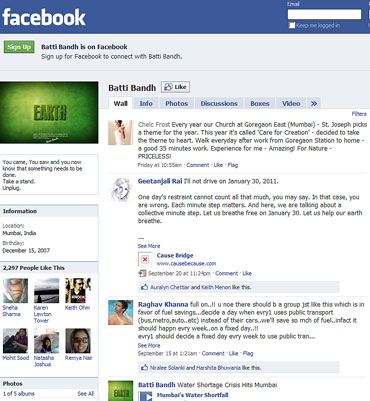
He said in the past too, social media has been extensively used in situations such as the Mumbai terrorist attacks, the swine flu pandemic last year and more recently on the Common Wealth Games in New Delhi. "When people wanted to know city-wise updates on the Ayodhya verdict day they turned to Twitter, when users needed to create momentum or gather opinions on issues like corrupt politicians or Mumbai blasts, they turn to Facebook," he said.
The reasons to drive a social movement using the internet are simple -- no capital cost and speedy response from target users. Last year, Keith Menon, organiser of Batti Bandh, a social interest campaign to save electricity, used the Batti Bandh community on Facebook to deliver updates about the campaign.
Now, Menon wants to leverage the use of Twitter and Facebook to facilitate car and taxi pooling. He plans to launch an application that would allow people tweet their starting point and destination, show the route on Google Maps and allow other social media users to join in. Menon, who is looking to launch the app in six cities to begin with, said, "If you can harness social media to save fuel and get a transport, then why not."
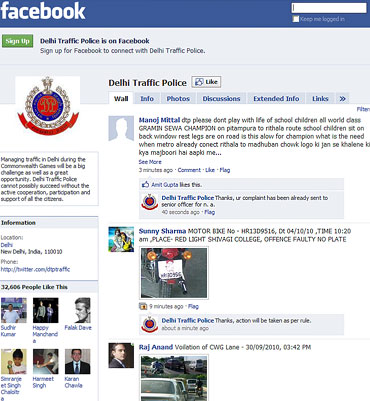
While individual politicians and governments remain wary of using digital mediums, the Indore Police Department has started using a blog: Twitter, online and mobile complaint forms, a Google map of police stations and a digital crime mapper to track criminal activities in the region.
The Maharashtra police department too launched an SMS-based complaint tracking system, called Turant Chovis, that promises quick redressal of citizens' complaints by sending a first response within 24 hours and resolving the issue within 30 days. The Delhi traffic police maintains an active presence on Facebook and Twitter to help citizens with traffic related issues in the national capital.